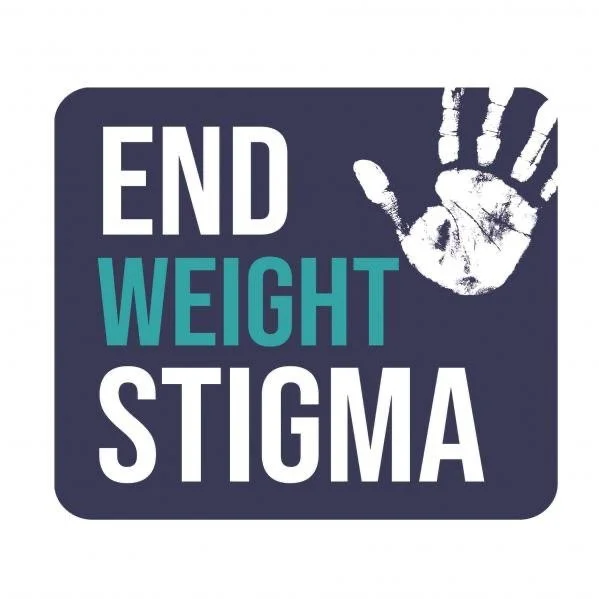ADDRESSING WEIGHT STIGMA ON WORLD OBESITY DAY: A call for Compassion and Understanding
World Obesity Day, which takes place on the 4th of March each year, aims to increase awareness, encourage advocacy, improve policies, and share experiences.
The theme for World Obesity Day 2024 is ‘Changing Perspectives: Let’s talk about Obesity’.
This year’s World Obesity Day is opening up a wider conversation and encouraging people to have constructive conversations about obesity.
What is weight stigma?
While the conversation often focuses on the physical health implications of obesity, it is crucial to shine a light on the often-overlooked aspect of weight stigma.
Weight stigma, characterised by negative attitudes and discrimination based on body weight, not only complicates the struggles of those living with excess weight but also perpetuates societal misconceptions and increases barriers to effective treatment (2).
Weight stigma shows up in many forms, from subtle social cues to outright discrimination in healthcare settings, workplaces, media representations, and interpersonal relationships. It stems from deep-rooted societal beliefs that equate thinness with health, success, and moral virtue, while stigmatising larger bodies as lazy, undisciplined, or morally deficient. Such stereotypes not only oversimplify the complex factors contributing to obesity but also overlook the profound impact of genetic, environmental, and socio-economic factors (4).
Let’s talk about obesity and challenge damaging misconceptions that halt progress…
Individuals who experience weight-based discrimination are more likely to develop low self-esteem, depression, anxiety, and disordered eating behaviours.
Another significant consequence of weight stigma is that individuals may hesitate to seek healthcare due to fear of judgement or receive poorer care from biased providers (4).
Weight stigma in healthcare
In healthcare, weight stigma can show up in many ways, which can result in less effective care and negative outcomes for patients who are living with overweight. Studies suggest that healthcare providers might have hidden biases against people living with overweight or obesity, which can affect how they’re treated and the quality of care they receive.
Patients living with obesity frequently report feeling judged, dismissed, or even shamed during medical consultations, discouraging them from seeking essential preventive care or necessary treatment.
Weight-based assumptions can overshadow underlying health concerns, leading to misdiagnoses or inadequate management of conditions.
Addressing weight stigma within healthcare requires systemic change, including delivering education to recognise and challenge biases, implementing non-judgmental language and practices, and fostering environments that prioritise patient-centred care regardless of body size.
By embracing empathy, we open doors to a more inclusive and understanding community. It's about acknowledging that each person is on a unique path, facing their own challenges and triumphs. Empathy goes hand in hand with creating an atmosphere where individuals feel supported, valued, and encouraged in their pursuit of a healthier lifestyle (4).
It's about rewriting the narrative and making sure everyone feels valued on their unique health journey!
Challenge the Misconceptions
World Obesity Day is a great opportunity to challenge misconceptions surrounding obesity and promote empathy and understanding. It’s essential to acknowledge that health is not solely determined by body weight and that individuals living with obesity deserve dignity, respect and access to healthcare without fear of discrimination (3). Addressing weight stigma imposes tackling systemic inequalities, celebrating body diversity, and fostering environments that prioritise health over appearance (4).
How do we combat weight stigma?
·Shifting the attention away from weight and onto health, by increasing healthy lifestyle habits such as regular physical activity.
·Greater education on obesity - the generalised view that obesity relates solely to nutrition and exercise contributes to weight stigma. Obesity is a multifactorial disease and aspects such as genetics, environment, and behaviour, must be taken into consideration.
·Try using People-First Language; instead of describing people as obese, refer to them as “having obesity” or “living with obesity”.
World Obesity Day 2024
According to the most recent data from the World Health Organization (WHO), obesity rates continue to escalate globally. In 2035, it is estimated that over 1.9 billion people around the world will be living with obesity. Moreover, obesity rates among children and adolescents have also risen dramatically. These numbers only underscore the urgent need for concerted efforts to address the obesity epidemic through preventive measures, education, and policy interventions (1).
In our journey towards a more inclusive and healthier society, let’s remember that our words and actions matter. It’s not solely about what we say but also about the impact we have on others. Tackling weight stigma is a fundamental change in perspective that can lead to a greater positive outcomes and quality of life for people living with obesity.
This World Obesity Day, let's share knowledge, advocate together, and see obesity from a different perspective (2).
Written by: Ioanna Gourgouleti Specialist Mental Health Dietitian, Bsc (Hons) of Dietetics, HCPC registered
REFERENCES
1. World Health Organization (WHO)
2. Homepage | World Obesity Day
3. Homepage | World Obesity Federation
4. Essentials of Nutrition in Medicine and Healthcare, 1st Edition






